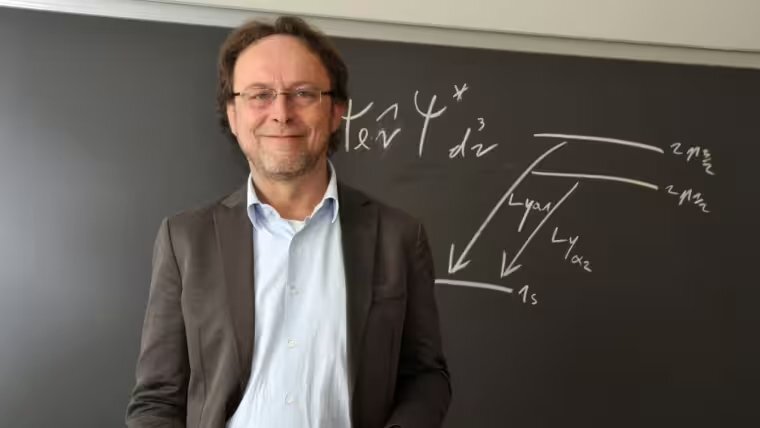
- Light
Published: | By: Lena Weitz, English translation by Gleb Chupakhin
Professor Dr. Thomas Stöhlker, Head of the Atomic, Quantum, and Fundamental Physics Research Division at GSI/FAIR, also Director of the Helmholtz Institute in Jena and Professor at Friedrich Schiller University Jena, has been distinguished with an ERC Advanced Grant from the European Research Council (ERC). Professor Stöhlker will receive the prestigious research funding prize for established scientists from the European Union for his project HITHOR, which aims to pave the way for the development of a nuclear clock using highly charged ions of the Th-229 isotope. A nuclear clock would enable timekeeping with unprecedented stability and accuracy, opening up unique opportunities for new insights in fundamental research and innovative applications.
With the Advanced Grant, the European Research Council supports Stöhlker's pioneering work on precision spectroscopy of highly charged ions in storage rings and traps. The award is accompanied by funding of up to 2.5 million euros over a period of five years.
"I am extremely pleased with this fantastic opportunity and thank the European Research Council," says Thomas Stöhlker. "HITHOR will be realized at the ion storage rings and trap facilities of GSI/FAIR, as this is the only accelerator facility in the world where highly ionized thorium-229 can be synthesized, decelerated, captured, cooled and ultimately subjected to precision measurement. The ERC Advanced Grant enables my team and me to bring together the exceptional expertise of scientists from various disciplines at GSI/FAIR and the Helmholtz Institute in Jena to realize these novel experiments."
Establishment of a new time standard possible
Intensive research on the "thorium clock" is underway in many laboratories worldwide because a "nuclear clock" opens up new possibilities for fundamental physics, such as testing for time variation of natural constants and exploring the mystery of dark matter. In the long term, such a "nuclear clock" could even lead to the establishment of a new time standard. The unique feature of the "HITHOR" project is a novel approach to the "thorium clock" focusing on highly ionized thorium-229, an elemental quantum system consisting solely of the thorium atomic nucleus with only one or a few electrons. The realization of a clock based on nuclear transitions for highly ionized thorium-229 promises fascinating new insights.
According to the European Research Council (ERC), ERC Advanced Grants are among the most demanding and prestigious funding instruments of the EU. They provide leading researchers with the opportunity to pursue ambitious, curiosity-driven projects that could lead to significant scientific breakthroughs. The total funding for ERC Advanced Grants amounts to nearly 652 million euros and is part of the EU program "Horizon Europe".